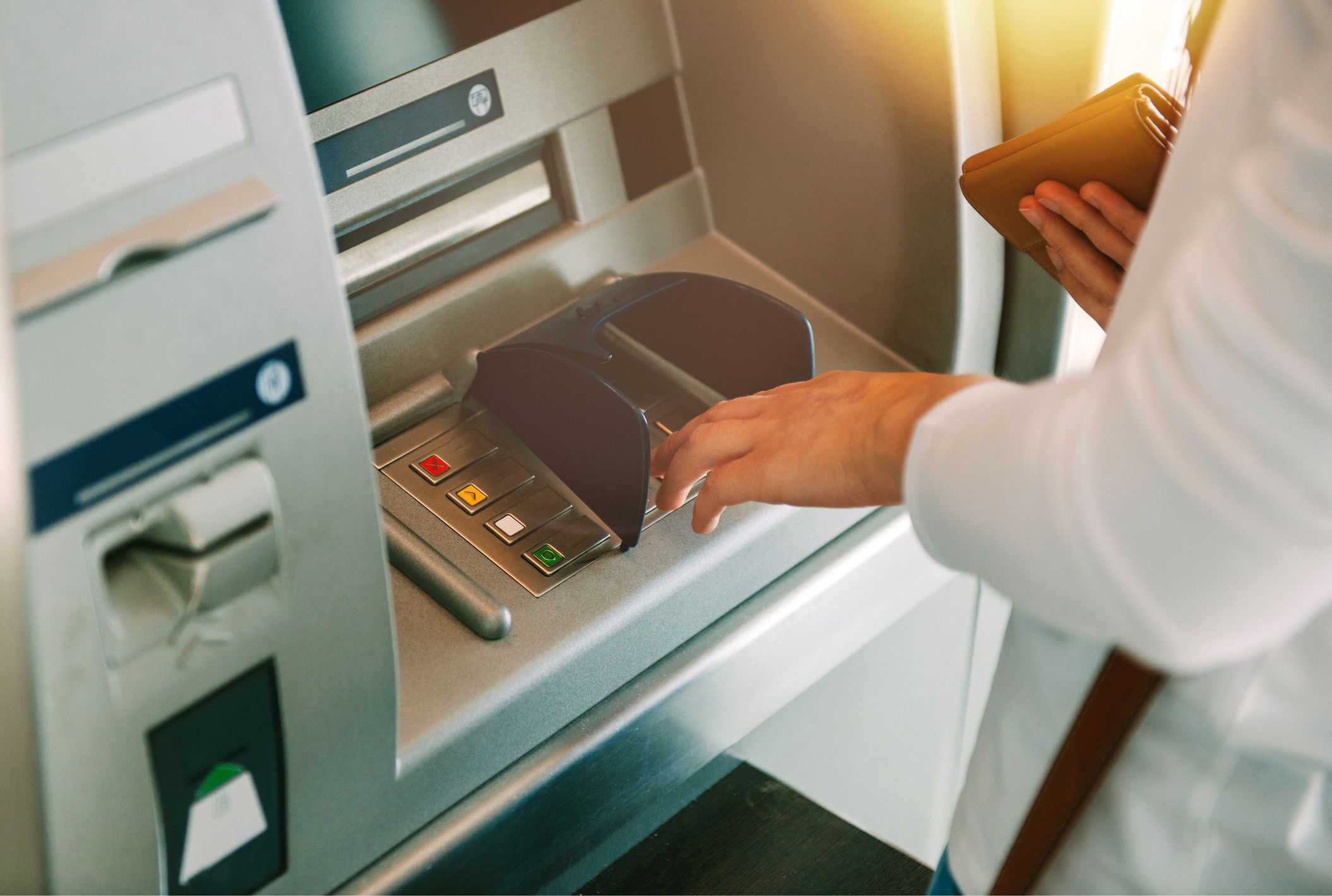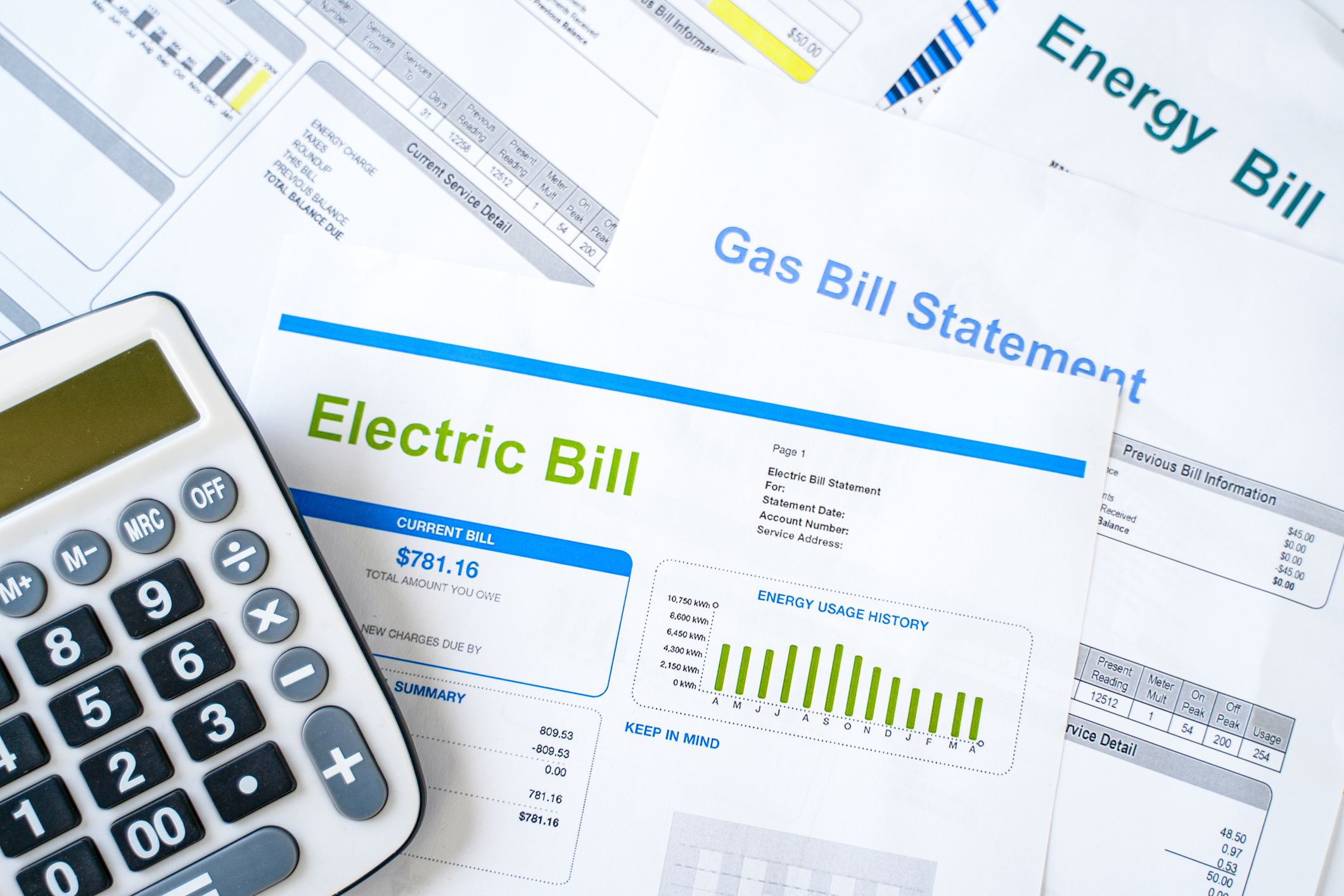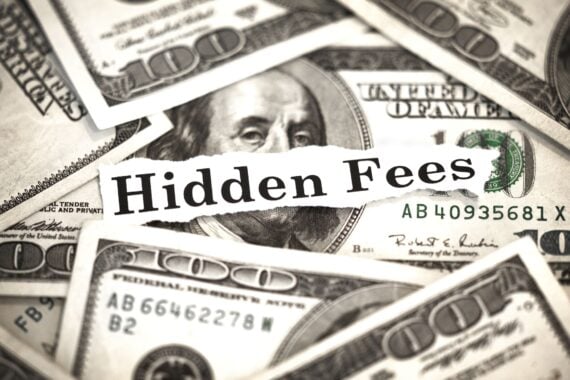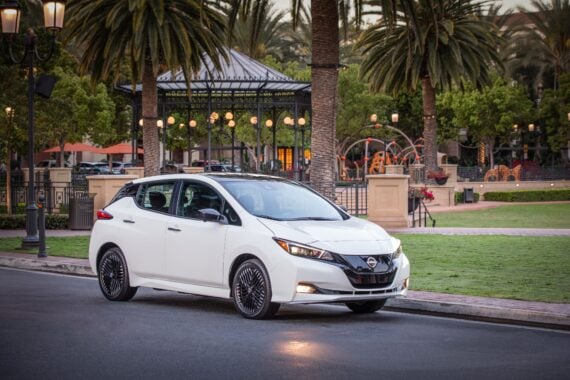Hidden fees can be like a tiny needle in a haystack — hard to find, but still capable of causing a painful sting. Like a stealthy thief in the night, hidden fees can add up and quietly drain your bank account without you even realizing it.
Is your bank charging you maintenance or ATM fees without your knowledge? Are you signed up for multiple streaming services or other subscriptions that you no longer use? Here are nine incredibly annoying hidden fees that you may not be aware you’re paying for, plus tips on how to avoid falling prey to them.
Bank Fees

Monthly maintenance and ATM fees are among the most common hidden fees charged by banks. Though these fees may seem small, they can quickly add up to become a burden on your finances. For example, if you are charged a $5 monthly maintenance fee and $3 for every out-of-network ATM withdrawal, and you make two cash withdrawals each month, you could be paying up to $11 in hidden fees each month.
To avoid these fees, it’s essential to review your bank statements regularly to identify any hidden fees that you may be charged. Consider switching to an online bank or credit union that offers lower fees (or no fees!) and better interest rates.
Resort and Hotel Fees

Resort fees, also known as facility or destination fees, are an additional charge that hotels and resorts tack onto your bill in addition to the room rate. These fees are typically mandatory and cover amenities such as pool access, Wi-Fi, gym facilities, and other perks. The fees can vary widely from hotel to hotel and can range anywhere from a few dollars to over $40 per night. To avoid these fees, be sure to read the fine print when booking a hotel stay and look for any additional charges beyond the room rate.
Related: The Most Luxurious RV Resorts Across America
Processing Fees

Convenience or processing fees are often added by ticket sellers to cover the cost of processing and distributing tickets. These fees can range from a few dollars to as much as 20% of the ticket price, depending on the event and the seller. It’s always helpful to compare prices across different platforms to avoid paying more than necessary. (Or you can follow our tips for saving money on concert tickets.)
For more great money-saving tips and other lifestyle advice, please sign up for our free newsletters.
Cable and Internet Fees

Internet and cable TV providers will sometimes charge you for equipment rental, installation fees, or penalties for going over your data limit without your knowledge. To avoid this, be sure to review your bill carefully each month and negotiate with your provider to try and reduce these fees. In some cases, you may be able to save money by bundling services or switching to a different plan that best fits your needs. And if you’re wondering which streaming service is best, we’ve laid it all out for you.
Credit Card Fees

Annual and foreign transaction fees are some of the most common additional charges that credit card companies may add onto your bill. To avoid being caught off guard, consider comparing credit card offers and reading the fine print before choosing which credit card to apply for; some cards may have hidden fees that are not immediately apparent, so be extra cautious when deciding.
Trending on Cheapism
Airline Fees

Although some budget airlines like Spirit and Frontier advertise limited amenities as a means to help customers save money, they can still charge you sneaky hidden fees for services such as baggage and seat selection, priority boarding, or in-flight meals. To avoid getting ripped off, be sure to review the airline’s fee schedule before booking a flight to factor extra fees into the total cost of your trip.
Car Rental Fees

Car rental companies frequently tack on additional charges for insurance, fuel, and tolls. To avoid paying for unnecessary fees, it’s crucial to review the rental agreement carefully and consider purchasing insurance through your own provider. Some credit cards offer bundled insurance that you can apply towards a rental vehicle, potentially helping you save a nice chunk of cash while renting.
Subscription Fees

Automatic renewal fees and additional charges for premium content are common in subscription services such as magazines, apps, and streaming services. To avoid paying for subscriptions you don’t use or have forgotten about, remember to review your subscriptions regularly and cancel any that you’re no longer using.
Sign up for our newsletter
Utility Bill Fees

Utility companies can charge additional fees for a variety of reasons such as late payments, using paper bills, and excessive water or electricity consumption. Some utility companies may also charge higher rates or impose penalties if you use more water or electricity than your plan allows.






